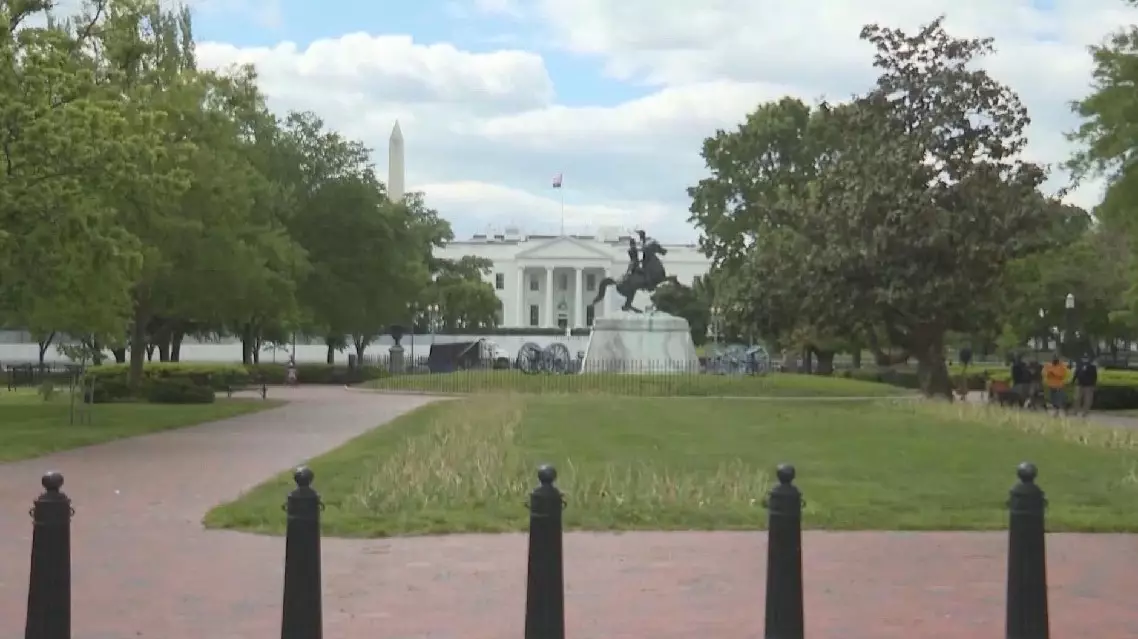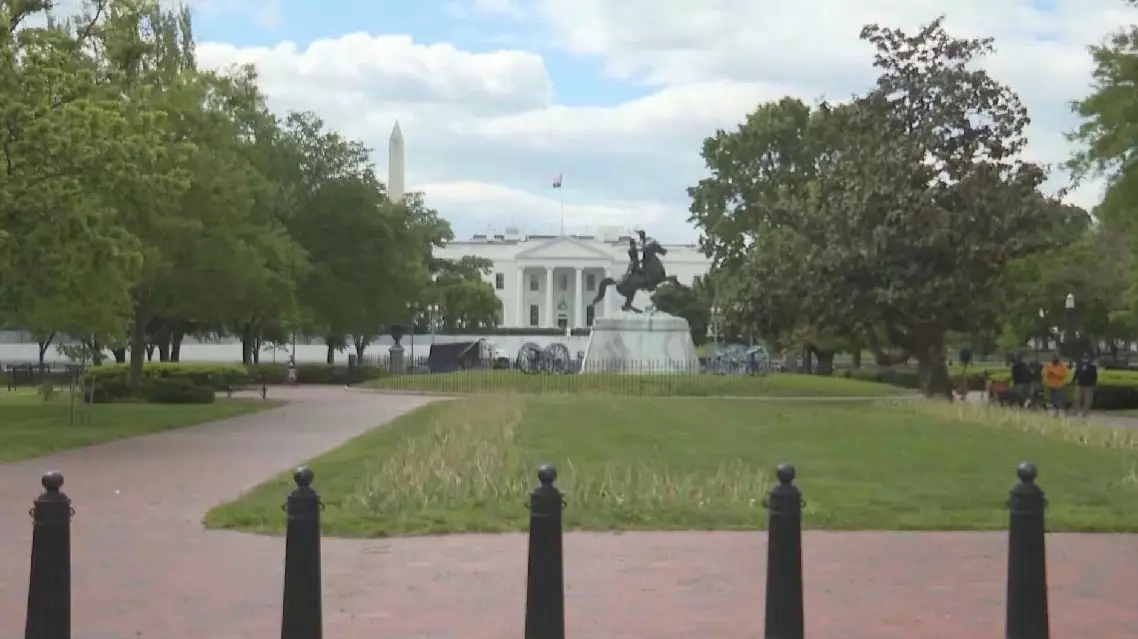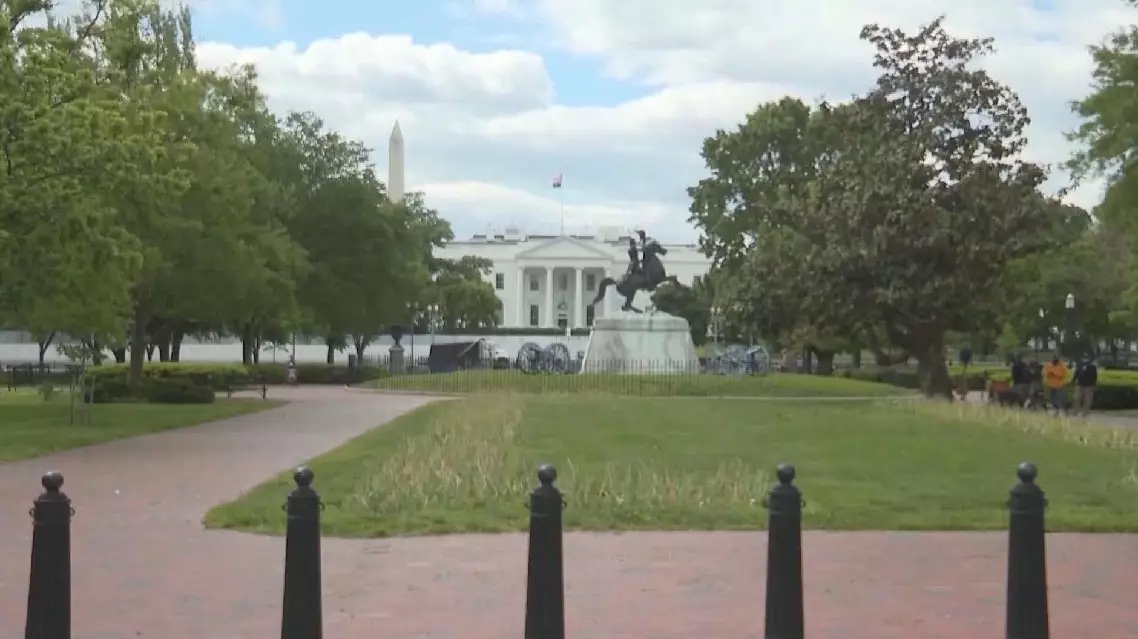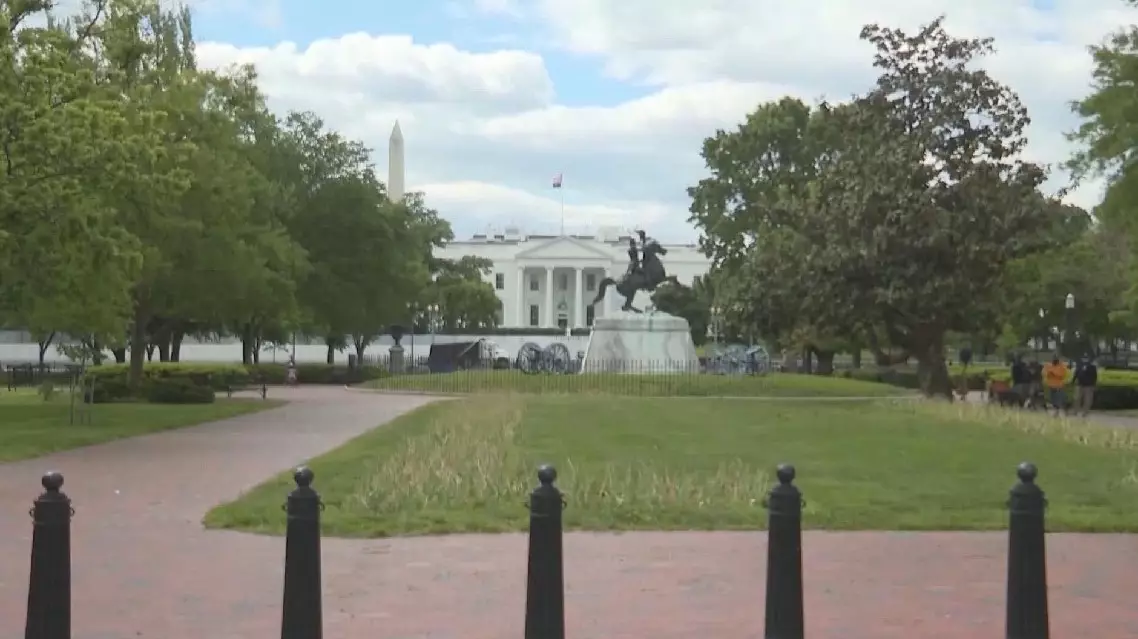President of the United States Joe Biden has extended for another year the Trading with the Enemy Act, a 1917 regulation under which the blockade of Cuba was imposed, Cuban media reported on Wednesday.
The continuation of the exercise of these authorities with respect to Cuba for one year, until September 14, 2025, is in the national interest of the United States, Biden said in the brief memorandum sent to the Treasury Department, published in the Federal Register.
The Trading with the Enemy Act, enacted under the administration of Woodrow Wilson who served as the 28th president of the United States from 1913 to 1921 during the period of World War I (1914 to 1918), empowers the government in power in Washington to restrict commercial activities with any nation that they consider an adversary.
Based on this legislation, on February 7, 1962, Democratic President John F. Kennedy issued Executive Order 3447, which officially began an economic, commercial and financial blockade of Cuba that has survived 11 White House administrations.
Cuban Foreign Minister Bruno Rodriguez said on Thursday that the blockade constitutes a massive, flagrant and systematic violation of the human rights of the Cuban people and the main obstacle to the country's development.
At current prices, the accumulated damages of the economic, commercial and financial blockade and trade embargo over the past six decades have amounted to the astronomical figure of 164.141 billion U.S. dollars, according to Rodriguez.
Since 1992, the United Nations General Assembly has overwhelmingly voted in favor of the resolution presented by Cuba to lift the blockade. Last year, the draft resolution was approved by 187 countries and opposed only by the United States and Israel, with Ukraine abstaining.

US extends blockade of Cuba for another year

US extends blockade of Cuba for another year

US extends blockade of Cuba for another year

US extends blockade of Cuba for another year
Macao has been emerging as a global hub for conventions and exhibitions in recent years by exploring the enormous opportunities in the sector, driving the region to advance its economic diversification and embrace a brighter future.
Macao has received many awards this year, such as the Best Convention City (Asia) and the Best BT-MICE City, showcasing the recognition for and influence of Macao's exhibition industry.
More than 1,000 electronic game enthusiasts from all over the world gathered recently in Macao to participate in a esports themed event.
Su Zhili, organizer of the event, said that Macao's rich experience in hosting large-scale events, coupled with its good infrastructure, has driven him to choose the region as an ideal destination to hold such an activity.
"Macao has held many similar large-scale events. It has rich experience, and the facilities at the venue are relatively mature, so we can start our work comfortably," said Su.
During the first three quarters of 2024, Macao held more than 1,000 conferences and exhibitions in total.
"We will invite more professional, special conferences to be held in Macao and also cultivate more exhibition brands with international influence in Macao, so as to promote Macao's exhibitions to be more market-oriented, professional, international, digital and greener from various aspects. This is our goal," said Elaine Wong, member of the Macao Commerce and Investment Promotion Institute.
In addition, multiple large exhibitions and conferences, such as the Macao International Trade and Investment fair, the Macao Franchise Expo, and the International Infrastructure Investment and Construction Forum, are held regularly in Macao.
With the introduction of a series of policies and measures to facilitate the exchanges between the mainland and Macao, as well as the construction and development of the Guangdong-Hong Kong-Macao Greater Bay Area and the Guangdong-Macao In-Depth Cooperation Zone in Hengqin, Macao's convention and exhibition industry will embrace more opportunities for development in the foreseeable future.
"We have such a good industrial base in the Greater Bay Area. The mode of 'Convention and Exhibition + Industry' not only integrates the industries of Macao, but also the industries of the Greater Bay Area. In addition, Macao actively integrates into the national development and plays a role in the Belt and Road. Why are we so confident in Macao's convention and exhibition sector? Because it is backed by the motherland, and the country gives Macao great support," said Alan Ho, chairman of the Macao Association of Convention, Exhibition and Tourism Sectors.

Macao emerges as global hub for conventions and exhibitions, driving economic diversification and international recognition













